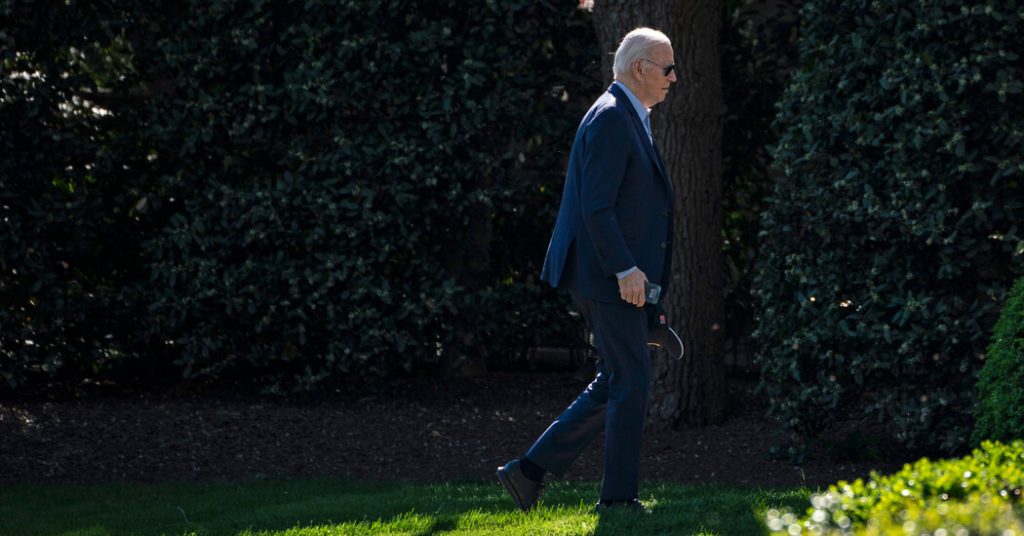President Biden and his team are advising Israel to exercise caution and avoid further escalation following a recent successful defense against Iranian airstrikes. Despite pressure from within Israel to respond, U.S. officials believe that the interception of nearly all of the drones and missiles fired demonstrates Israel’s ability to protect itself and its allies. While Israeli jets did strike structures in Lebanon controlled by Hezbollah in response to explosive drones sent into Israel, it is unclear how related this action was to the Iranian airstrike. President Biden spoke with Prime Minister Benjamin Netanyahu following the attack, offering his commitment to Israel’s security and hinting at a desire for restraint in retaliatory actions.
The current tensions between Israel and Iran come at a time of strain in the relationship between President Biden and Prime Minister Netanyahu. Just days before the recent attack, President Biden had threatened to reassess U.S. support for Israel’s actions in Gaza if civilians continued to suffer. Additionally, Israel’s recent airstrike against Iranian officers in Damascus raised concerns of escalating conflict, with the U.S. warning Iran not to respond. American and Israeli officials had been coordinating military operations in anticipation of potential Iranian action, leading to a successful defense against the recent attacks on Israel.
Despite the significant number of drones and missiles fired at Israel, some analysts believe that Iran’s intentions were primarily a show of force rather than a desire for full-fledged war. Iran had given warning of the impending attack and appears to want to avoid direct engagement with the United States. This situation is reminiscent of previous conflicts, such as when President Trump ordered the killing of General Suleimani and Iran retaliated with relatively minor damage before indicating a desire to de-escalate. President Biden and his team are hoping to prevent further escalation by encouraging restraint on the part of Israel and avoiding direct engagement with Iran.
Conservatives in the U.S. have called for aggressive military strikes against Iran in response to the recent attacks, viewing the situation as an opportunity to take strong action against the Iranian regime. However, President Biden’s preference for a diplomatic response was evident in his statements following the attack, emphasizing the need for coordinated international action. The Group of 7 major industrial democracies and the United Nations Security Council are expected to address the situation in upcoming meetings, with President Biden aiming to guide Israel towards a path of de-escalation.
Israel’s Defense Minister has urged continued vigilance and preparation for various scenarios following the recent attacks, while stating that the most significant wave of the attack has been successfully thwarted. Despite the pressure to respond to Iran’s actions, Israel may have room to declare victory and move on due to the relatively limited damage caused by the attacks. The successful defense against the airstrikes and the previous targeting of senior Iranian officers in Damascus without significant consequences may suggest that further military action is not necessary.
Overall, the recent conflict between Israel and Iran has highlighted the delicate balance between deterrence and escalation. While both sides have demonstrated their capabilities and willingness to respond to threats, the importance of diplomacy and international coordination in preventing further violence is a key focus for President Biden and his administration. By urging restraint and emphasizing the need for a diplomatic solution, the U.S. is seeking to navigate a potentially volatile situation in the Middle East and avoid further escalation towards a wider conflict.


